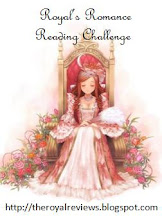Well Girlie's here are the questions for the next book .......
1. What did you think of The Boy in the Striped Pyjamas? What did you particularly appreciate? How did your emotions change during the course of the story?
2. Do you think Boyne was right to look at this subject from the perspective of a naïve young boy? How effective do you think this was in helping you to approach the subject?
3. How did you feel about Bruno and his family when we first meet them in Berlin? To what extent did you struggle to identify with them because they are a Nazi family?
4. At age 12, Gretel is the proper age for membership in the League of Young Girls, a branch of Hitler’s Youth Organization. Why do you think she is not a member, especially since her father is a high-ranking officer in Hitler's army?
5. What did you think of Bruno’s character? What did you like about him? What didn’t you like?
6. To what extent could you understand Bruno’s adoration of his father, and his struggle to come to terms with what he was discovering?
7. Bruno asks his father about the people outside their house at Auschwitz. His father answers, “They’re not people at all Bruno.” (p. 53) Discuss the horror of this attitude. How does his father’s statement make Bruno more curious about Out-With?
8. What is it about the house at Out-With that makes Bruno feel “cold and unsafe”? How is this feeling perpetuated as he encounters people like Pavel, Maria, Lt. Kotler, and Shmuel?
9. How did your feelings about Ralph (Bruno’s father) change during the book? Was there a turning point in your feelings? If so, when?
10. Why do you think Ralph did what he did? How would he have justified it to himself and to others?
11. What do you think drove Obersturmführer Kotler to be so cruel?
12. Why does Gretel change? What impact does this have on Bruno?
13. How would you describe Elsa? Were you surprised that Elsa (Bruno’s mother) was unaware of the true nature of the camp? How would you have responded to this situation if you had been in her position?
14 .‘Elsa doesn’t think. She doesn’t think for herself, she doesn’t think deeply. She chooses to be oblivious, concerning herself only with the safety of her family and her position in society – everything else is beyond her periphery. She’s a sort of accomplice and assistant to her husband’s ideals, his desires, his morals and his ambitions.’ (Vera Farmiga)
To what extent do you think she is morally responsible for what happens?
15. When Bruno dresses in the filthy striped pajamas, he remembers something his grandmother once said. “You wear the right outfit and you feel like the person you’re pretending to be.” (p, 205) How is this true for Bruno? What about his father? What does this statement contribute to the overall meaning of the story?
16. How would you describe the friendship between Bruno and Schmuel? What makes it a good friendship?
17. Why did Bruno betray Schmuel? Why was their friendship able to survive this?
18. How do you think the family, and Ralph in particular, would be impacted by the final scenes of the book?
19. How do the characters in The Boy in the Striped Pyjamas exemplify Hannah Arendt’s notion of ‘the banality of evil’, that evil arises out of the tendency of ordinary people to follow orders, to accept what they’re told by authorities, to conform to the prevailing opinion? How easily could such evil arise in our own society? What might lead to it? What could prevent it?
20. When Bruno and his family board the train for Auschwitz, he notices an over-crowded train headed in the same direction. How does he later make the connection between Shmuel and that train? How are both trains symbolic of each boy’s final journey?
21. Bruno issues a protest about leaving Berlin. His father responds, “Do you think that I would have made such a success of my life if I hadn’t learned when to argue and when to keep my mouth shut and follow orders?” (p. 49) What question might Bruno’s father ask at the end of the novel?
22. In what sense is this a redemptive story?
23. Does The Boy in the Striped Pyjamas fill you with despair or hope? Why?
24. What would you identify as the most important messages from The Boy in the Striped Pyjamas
2. Do you think Boyne was right to look at this subject from the perspective of a naïve young boy? How effective do you think this was in helping you to approach the subject?
3. How did you feel about Bruno and his family when we first meet them in Berlin? To what extent did you struggle to identify with them because they are a Nazi family?
4. At age 12, Gretel is the proper age for membership in the League of Young Girls, a branch of Hitler’s Youth Organization. Why do you think she is not a member, especially since her father is a high-ranking officer in Hitler's army?
5. What did you think of Bruno’s character? What did you like about him? What didn’t you like?
6. To what extent could you understand Bruno’s adoration of his father, and his struggle to come to terms with what he was discovering?
7. Bruno asks his father about the people outside their house at Auschwitz. His father answers, “They’re not people at all Bruno.” (p. 53) Discuss the horror of this attitude. How does his father’s statement make Bruno more curious about Out-With?
8. What is it about the house at Out-With that makes Bruno feel “cold and unsafe”? How is this feeling perpetuated as he encounters people like Pavel, Maria, Lt. Kotler, and Shmuel?
9. How did your feelings about Ralph (Bruno’s father) change during the book? Was there a turning point in your feelings? If so, when?
10. Why do you think Ralph did what he did? How would he have justified it to himself and to others?
11. What do you think drove Obersturmführer Kotler to be so cruel?
12. Why does Gretel change? What impact does this have on Bruno?
13. How would you describe Elsa? Were you surprised that Elsa (Bruno’s mother) was unaware of the true nature of the camp? How would you have responded to this situation if you had been in her position?
14 .‘Elsa doesn’t think. She doesn’t think for herself, she doesn’t think deeply. She chooses to be oblivious, concerning herself only with the safety of her family and her position in society – everything else is beyond her periphery. She’s a sort of accomplice and assistant to her husband’s ideals, his desires, his morals and his ambitions.’ (Vera Farmiga)
To what extent do you think she is morally responsible for what happens?
15. When Bruno dresses in the filthy striped pajamas, he remembers something his grandmother once said. “You wear the right outfit and you feel like the person you’re pretending to be.” (p, 205) How is this true for Bruno? What about his father? What does this statement contribute to the overall meaning of the story?
16. How would you describe the friendship between Bruno and Schmuel? What makes it a good friendship?
17. Why did Bruno betray Schmuel? Why was their friendship able to survive this?
18. How do you think the family, and Ralph in particular, would be impacted by the final scenes of the book?
19. How do the characters in The Boy in the Striped Pyjamas exemplify Hannah Arendt’s notion of ‘the banality of evil’, that evil arises out of the tendency of ordinary people to follow orders, to accept what they’re told by authorities, to conform to the prevailing opinion? How easily could such evil arise in our own society? What might lead to it? What could prevent it?
20. When Bruno and his family board the train for Auschwitz, he notices an over-crowded train headed in the same direction. How does he later make the connection between Shmuel and that train? How are both trains symbolic of each boy’s final journey?
21. Bruno issues a protest about leaving Berlin. His father responds, “Do you think that I would have made such a success of my life if I hadn’t learned when to argue and when to keep my mouth shut and follow orders?” (p. 49) What question might Bruno’s father ask at the end of the novel?
22. In what sense is this a redemptive story?
23. Does The Boy in the Striped Pyjamas fill you with despair or hope? Why?
24. What would you identify as the most important messages from The Boy in the Striped Pyjamas


















1 comment:
great questions!
Post a Comment